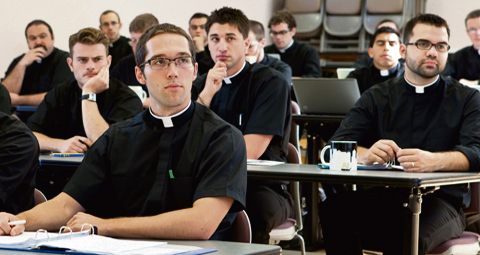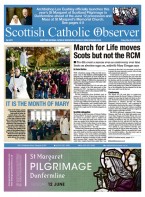May 20 | ![]() 0 COMMENTS
0 COMMENTS ![]() print
print

Today’s youth—who are they really?
Fr Ronald Rolheiser
A seminarian I know recently went to a party on a Friday evening at a local university campus. The group was a crowd of young, college students and when he was introduced as a seminarian, as someone who was trying to become a priest and who had taken a vow of celibacy, the mention of celibacy evoked some giggles in the room, some banter, and a number of jokes about how much he must be missing out on in life. Poor, naïve fellow! Initially, within this group of millenniums, his religious beliefs and what this had led to in his life was regarded as something between amusing and pitiful. But, before the evening was out, several young women had come, cried on his shoulder, and shared about their frustration with their boyfriends’ inability to commit fully to their relationship.
This incident might serve as a parable describing today’s young people in our secularised world. They exhibit what might aptly be called a bi-polar character about faith, church, family, sexual ethos, and many other things that are important to them.
They present an inconsistent picture: On the one hand, by and large, they are not going to church, at least with any regularity; they are not following the Christian ethos on sexuality; they seem indifferent to and even sometimes hostile to many cherished religious traditions; and they can appear unbelievably shallow in their addiction and enslavement to what’s trending in the world of entertainment, fashion, and information technology. Looked at from one perspective, our kids today can appear irreligious, morally blasé, and on a heavy diet of the kind of superficiality that characterises reality television and video games. More seriously still, they can also appear myopic, greedy, pampered, and excessively self-interested. Not a pretty picture.
But this isn’t exactly the picture.
Beneath that surface, in most cases, you will find someone who is very likeable, sincere, soft, good-hearted, gracious, moral, warm, generous, and searching for all the right things (without much help from a culture that lacks clear moral guidance and is fraught with over-choice). The good news is that most young people, at the level of their real desires, are not at odds at all with God, faith, church, and family. For the most part, youth today are still very good people and want all the right things.
But, that is not always so evident. Sometimes their surface seems to trump their depth so that who they really are and what they really want is not so evident. We see the surface and, seen there, our youth can appear more self-interested than generous, more shallow than deep, more blasé than morally sensitive, and more religiously indifferent than faith-filled. They can also manifest a smugness and self-sufficiency that suggests little vulnerability and no need for guidance from anyone beyond themselves.
Hence their bi-polarity: Mostly they want all the right things, but, too often, because of a lack of genuine guidance and their addiction to the culture, they aren’t making the kinds of choices that will bring them what they more-deeply desire.
Sexuality is a prime example here: Studies done on millenniums indicate that most of them want, at the end of the day, to be inside a monogamous, faithful marriage.
The problem is that they also believe that they can first allow themselves ten to 15 years of sexual promiscuity, without having to accept that practicing ten to 15 years of infidelity is not a good preparation for the kind of fidelity needed to a sustain marriage and family. In this, as in many other things, they are caught between their cultural ethos and their own fragile securities. The culture trumpets a certain ethos, liberation from the timidities of the past, complete with a smugness that belittles whatever questions it. But much of that smugness is actually whistling in the dark. Deep down, our youth are pretty insecure and, happily, this keeps them vulnerable and likeable.
Maybe Louis Dupre, the retired philosopher who taught for some many years at Yale, captures it best when he says that today’s young people are not bad, they are just not finished. That’s a simple insight that captures a lot. Someone can be wonderful and very likeable, but still immature. Moreover, if you’re young enough, that can even be attractive, the very definition of cool.
The reverse is also, often times, true: More than a few of us, adults, suffer from our own bi-polarity: We are mature, but far from wonderful and likeable. This makes for some strange, paradoxical binaries. So who is the actual young person of today? Is it the person who is wrapped up in his or her own world, obsessive about physical appearance, addicted to social media, living outside marriage with his or her partner, smug in his or her own non-traditional moral and religious views? That, I believe, is the surface appearance. The actual young person of today is warm, good-hearted, generous, and waiting, waiting consciously for love and affirmation, and waiting unconsciously for God’s embrace.
— Fr Ronald Rolheiser is a priest and member of the Missionary Oblates of Mary Immaculate. He is president of the Oblate School of Theology in San Antonio, Texas. Visit his website at www.ronrolheiser.com











